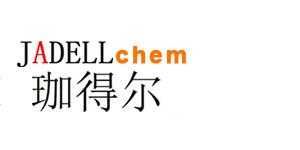Recombinant Mouse Interferon-gamma 是一种促炎性细胞因子,具有高效的免疫调节功能,同时可抗细胞增殖,抗病毒等。
Synonyms
rMuIFN-γ; IFNG; IFN-gamma; Interferon gamma ; 重组小鼠干扰素-γ
Species
MouseSource
E. coli Accession
P01580 Gene ID
15978 Molecular Weight
Approximately 15 kDa AA Sequence
MHGTVIESLE SLNNYFNSSG IDVEEKSLFL DIWRNWQKDG DMKILQSQII SFYLRLFEVL KDNQAISNNI SVIESHLITT FFSNSKAKKD AFMSIAKFEV NNPQVQRQAF NELIRVVHQL LPESSLRKRK RSRC Biological Activity
The ED50 is <0.15 ng/mL as measured by WEHI-279 cells. Appearance
Lyophilized powder. Formulation
Lyophilized after extensive dialysis against PBS. Endotoxin Level
<1 EU/μg, determined by LAL method. Reconstitution
Reconstitute the lyophilized recombinant Murine Interferon-gamma (rMuIFN-γ) to 100 µg/mL using ddH2O or diluted with PBS. Storage & Stability
Lyophilized recombinant Murine Interferon-gamma (rMuIFN-γ) is stored at -20°C. After reconstitution, it is stable at 4°C for 1 week or -20°C for longer. It is recommended to freeze aliquots at -20°C or -80°C for extended storage. Shipping
Room temperature in continental US; may vary elsewhere. Background
Interferon-gamma (IFN-γ) is a cytokine with potent immunomodulatory, anti-proliferative, and antiviral properties. IFN-γ activates cells via a different receptor than IFN-α and IFN-β, which accounts for the different physiological properties of the proteins. Production of IFN-γ is largely restricted to activated CD4+ TH1 T cells, CD8+ T cells, and natural killer cells. One of the most important consequences of IFN-γ secretion is the activation of macrophages. In addition, IFN-γ plays a central role in inflammatory responses by activating endothelial cells, promoting TH1 cell development and cellular immune responses, and up-regulation of major histocompatability complex protein expression on antigen-presenting cells[1]. |



